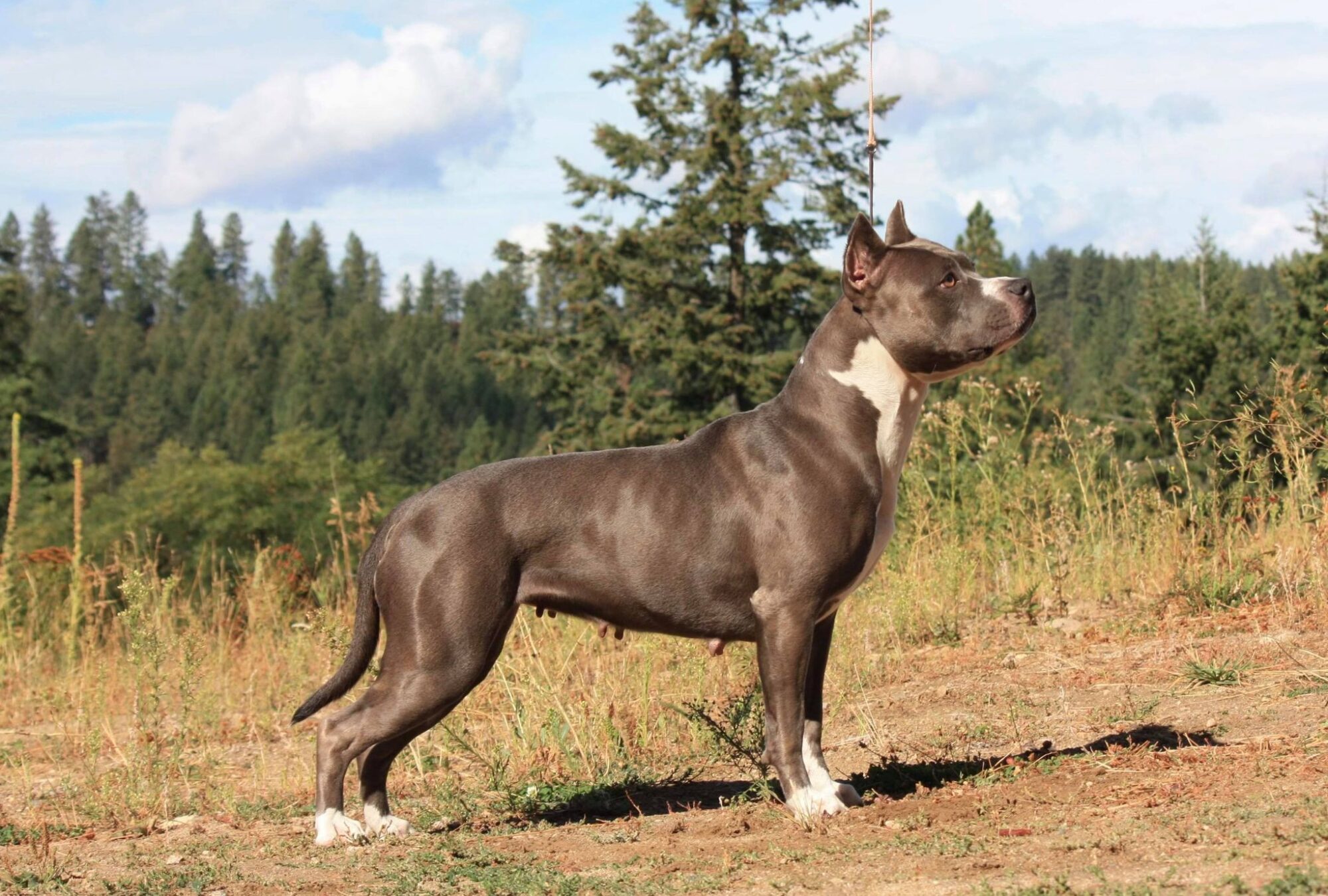The Origins of the American Pit Bull Terrier can be traced back to the Bull Dogs used in blood sports in the early 1800’s in the United Kingdom, such as Bull or Bear Baiting. In fact, several of today’s most loved breeds—the Bulldog, the Bull Terrier, and the American Staffordshire Terrier among them—got their start as fighting and baiting dogs of the 18th and 19th centuries. These bulldogs were derived from the Olde English Bulldog. However, once Bull Baiting was outlawed by the Cruelty to Animals Act in 1835, people turned to other forms of sport such as Ratting (a blood sport in which a dog in a pit was timed to see who could kill the most rats in the least amount of time), and dog fighting.

This is when Terriers were introduced into the blood lines in order to breed in more tenacity and better agility needed for Dog Fighting and Ratting, which is why these dogs were identified as Bull & Terrier breeds. It is also believed that this is where the name Pit Bull originated from, as these sports were generally practiced in a pit.

Together with their fearlessness and athleticism, Bull & Terrier dogs were selectively bred for good temperaments towards humans. Practioners of these dog sports had to be sure that they could wash their dogs, enter a pit and handle or retrieve their dogs without the fear of being bitten themselves. If a dog bit a human it was considered unfit for breeding and often culled.

The result was a dog that embodied all of the virtues attributed to great warriors: strength, indomitable courage, and gentleness with loved ones. Immigrants brought these bull-and-terrier crosses to the United States.
While these dogs continued to be used for dog fighting in America, they soon became a much larger and invaluable fixture in a developing nation, taking on more of an all-purpose role. The many talents of the American Pit Bull Terrier were put to use by farmers and ranchers who used their APBTs as catch dogs for semi- wild cattle and hogs, to hunt, and as family companions.
Due to the reluctance of other dog registries to recognize the APBT as a purebred dog because of the stigma attached to their name, Chauncey Bennett founded the United Kennel Club and assigned UKC registration number 1 to his own American Pit Bull Terrier, “Bennett’s Ring”, in 1898. This made the United Kennel Club the first registry to recognize the American Pit Bull Terrier and establish fighting guidelines for matches.
Up until this time, quite a bit of cross-breeding went on among the game dog fanciers of the time who were not so much interested in purebred dogs as they were in dogs with fighting ability, and would therefore breed accordingly to dogs that were game, regardless of pedigree. This has contributed to the misconception that the APBT is not a purebred dog. The truth is that virtually all of today’s dogs are the product of combining other dogs in order to enhance specific desired traits which would improve the ability to perform a specific function. The Doberman Pinscher for example is believed have been developed by combining the German Pinscher, Rottweiler, Weimaraner, Manchester Terrier, and Beauceron.
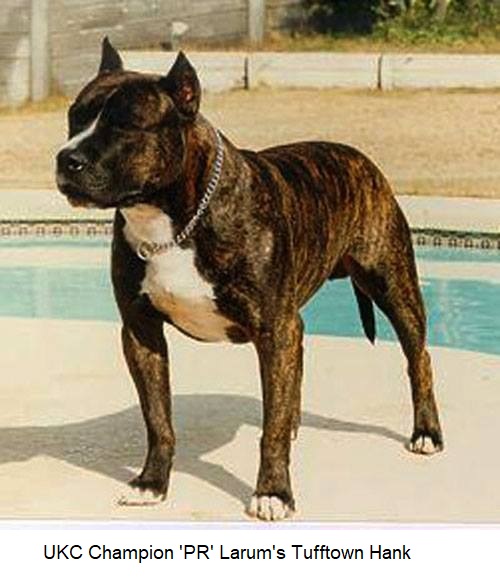
Now with the United Kennel Club registering APBTs and keeping record of breedings, ancestors, and offspring, the APBT could be refined and bred to conform to a specific standard. Introducing breeds other than the APBT into the bloodline was not permitted, thus establishing it as a pure breed. This also led to other registries recognizing the APBT such as the American Dog Breeder’s Association (1909), and the American Kennel Club (1936), although the latter chose to register them under the name American Staffordshire Terrier so as to separate the dog from it’s dog fighting stigma. Many people chose to dual-register their dogs with both the UKC and AKC.
Today, the American Pit Bull Terrier continues to demonstrate its versatility, competing successfully in Obedience, Rally Obedience, Tracking, Agility, Lure Coursing, Dock Jumping and Weight Pull, as well as Conformation.
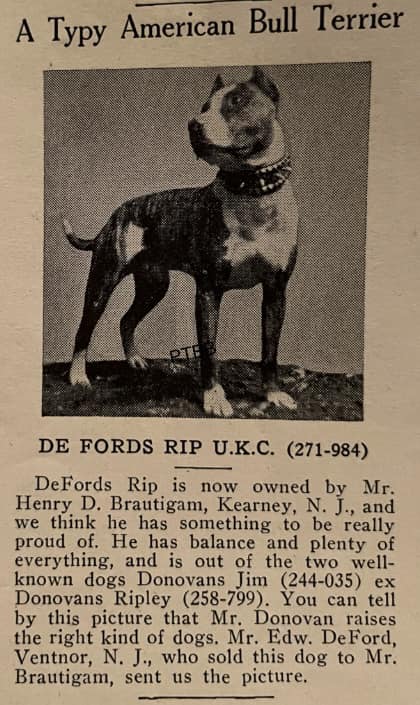
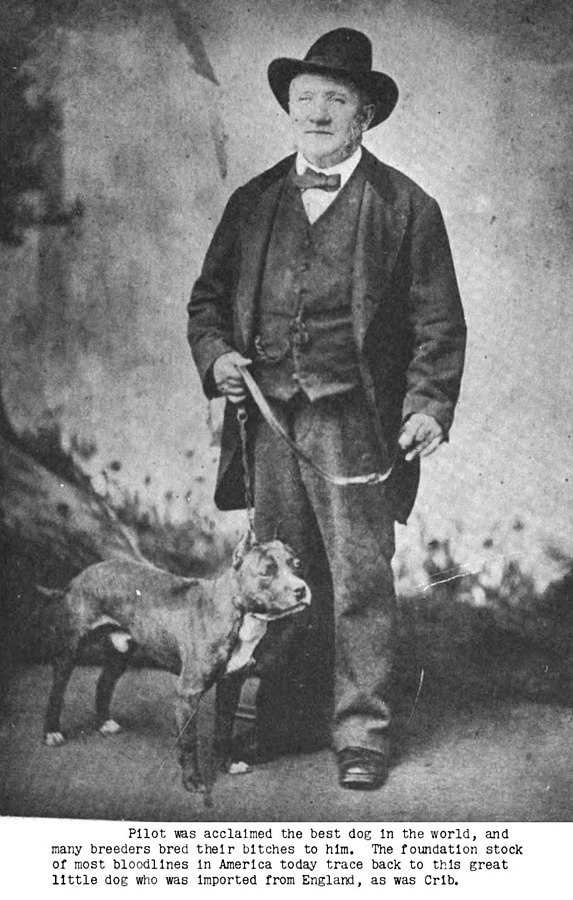


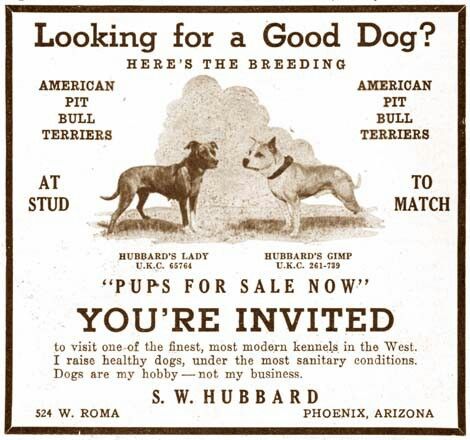



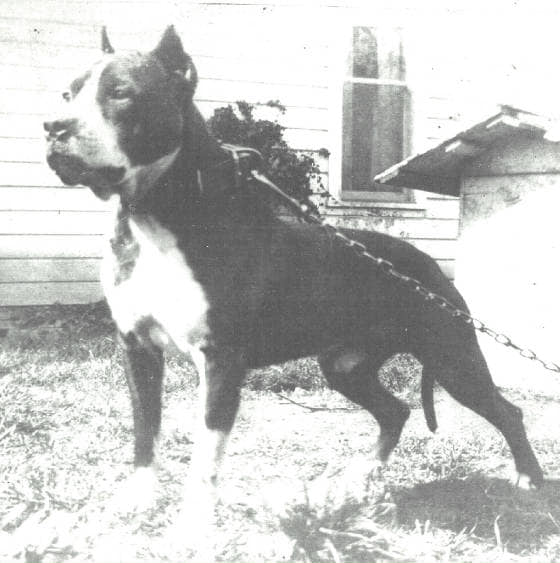
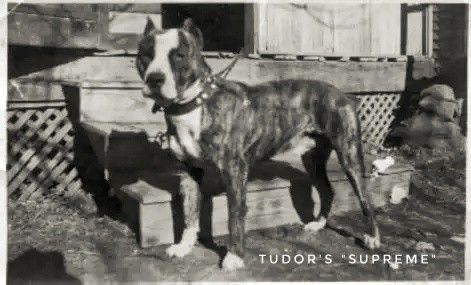
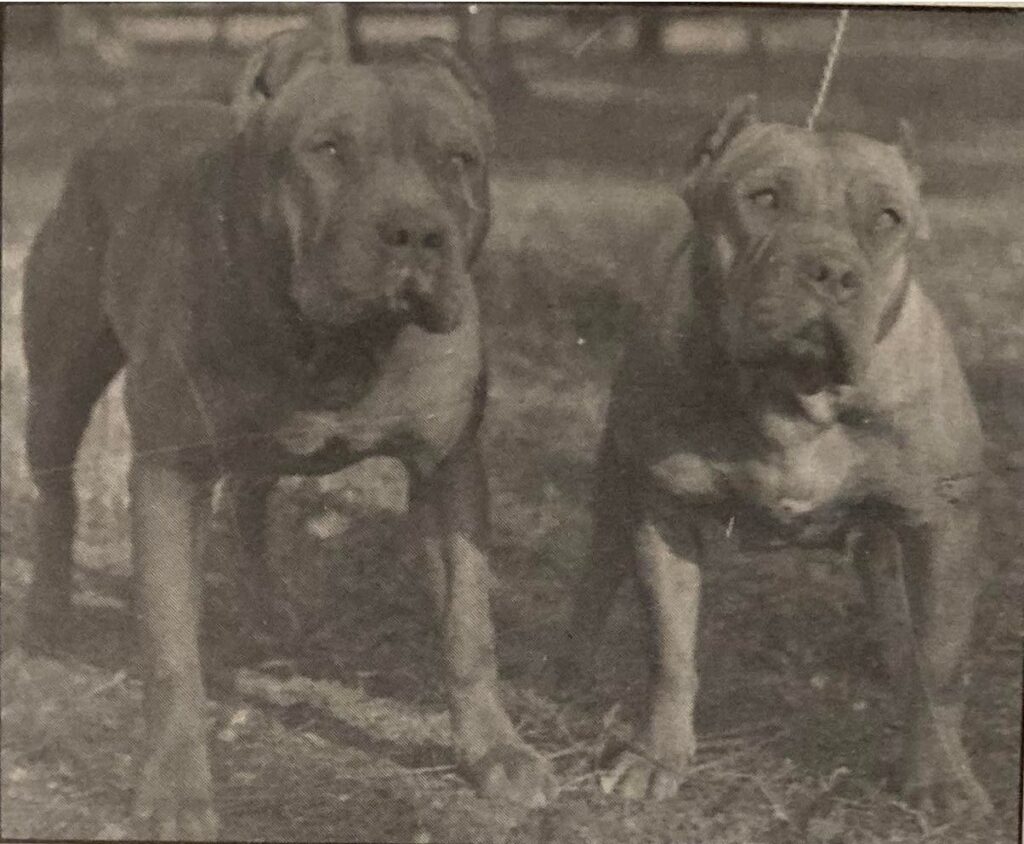
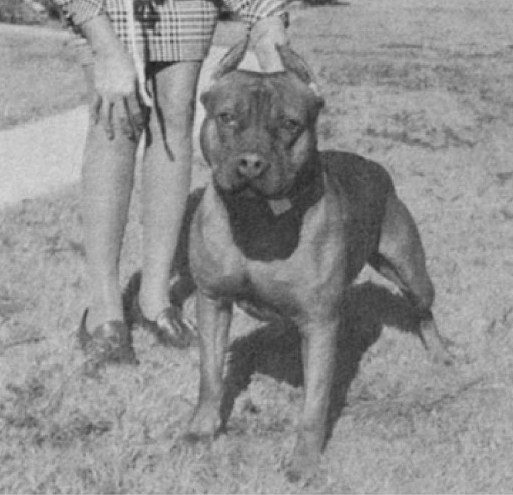

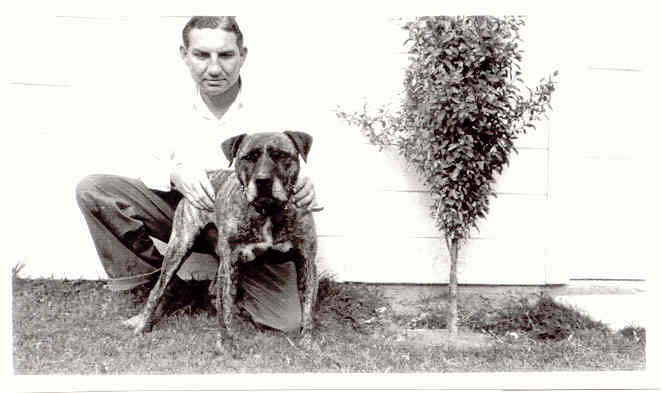

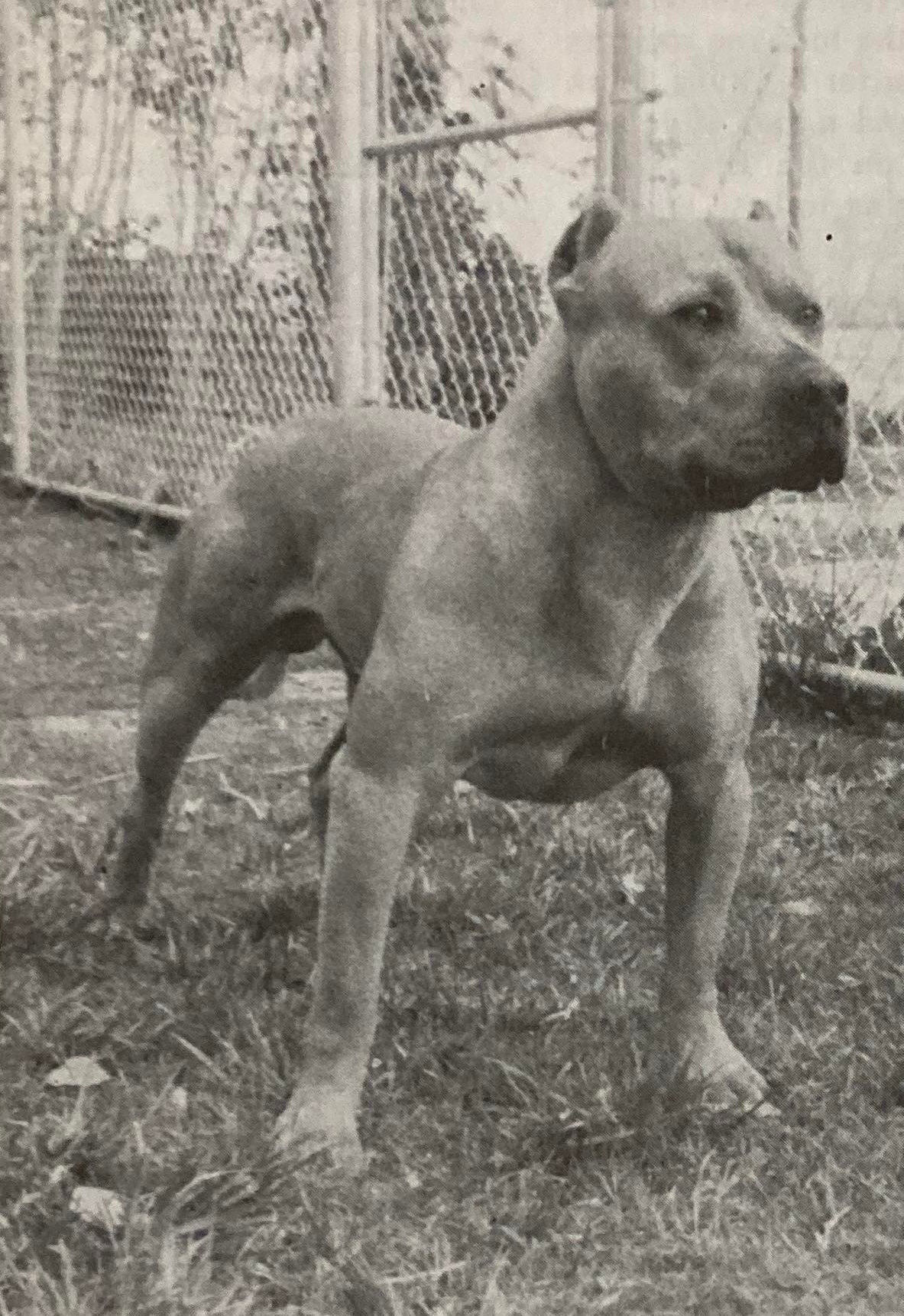

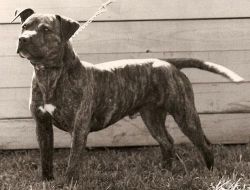


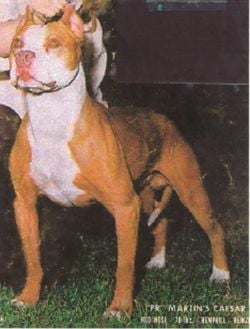
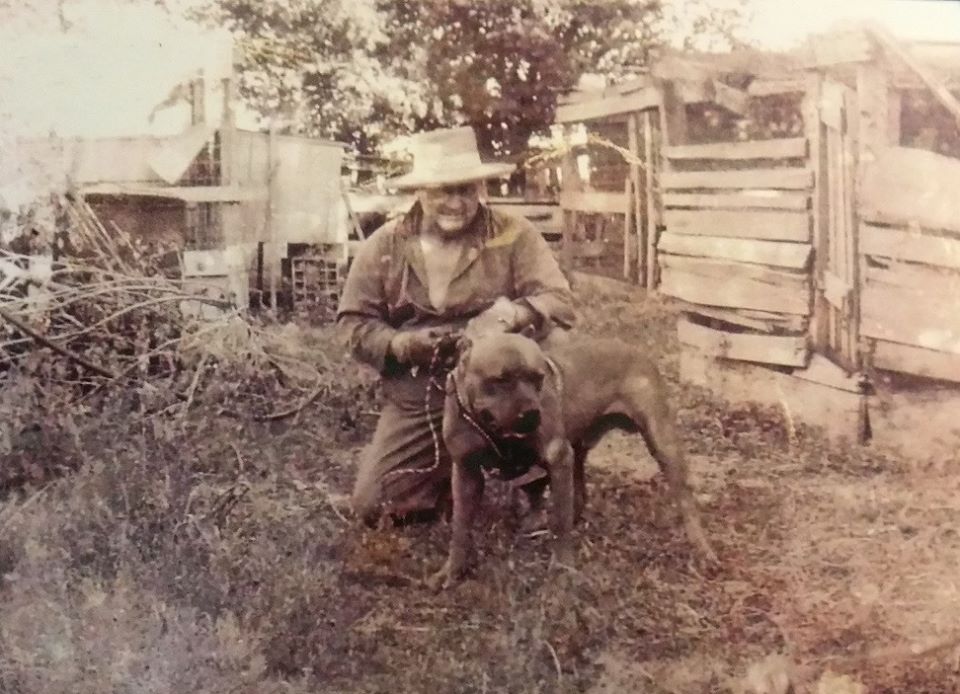
While the UAPBTO recognizes the history and origins of our breed, we will never condone or encourage dog fighting or any other illegal activities.
